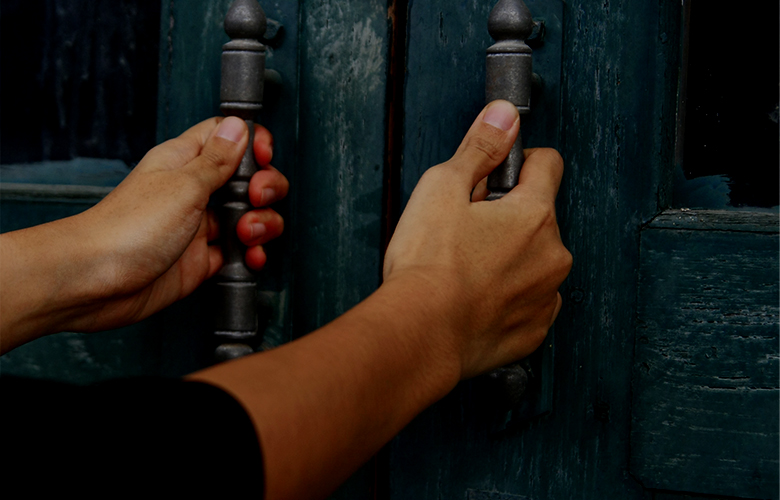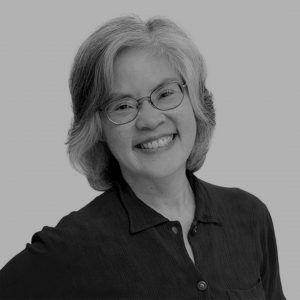
“Theatre is a very personal experience that grows in meaning and depth when shared with others.”
Wendy Wasserstein, playwright and founder, Open Doors program.
One of my favorite activities each year is the Open Doors program, sponsored by the Theatre Development Fund (TDF). TDF is the non-profit organization that runs the half-price ticket booth, TKTS, in the heart of the Broadway theatre district in New York. Open Doors is TDF’s flagship program that introduces New York City high school students to theater as a rich, meaningful form of expression and connection.
Over the course of the school year, I mentor eight senior and junior year students, where we attend six Broadway or Off-Broadway productions of my choosing. Following each performance, we have a 90-minute discussion over pizza to talk about our impressions of the show. The students also keep journals to write about their experiences with each production.
The students discover that they each have different perspectives about the meaning of the story, the characters and what was important to each of them in the production. As a group, they learn more about how this story connects personally to each of their lives, how to listen to another person’s perspective, and come to appreciate how honoring these different points of view opens up their own world view.
After seeing the musical, “The Color Purple”, based on Alice Walker’s 1982 novel, we talk about the power of storytelling and how that story resonates for each of us. Some of the themes that they spoke and wrote about included:
We talk about the art and craft of design, and how it supports the production.
They noticed how Celie, the main character in “The Color Purple”, goes from a drab brown housedress in Act 1 to bright yellow slacks in Act 2 as her character grows in confidence and empowerment.
I pointed out how the musical opening to Act 2, when Nettie (Celie’s sister) sings about the wonders and joys of living in Africa, looks and sounds different than the rest of the show. It is the first time that we hear music in 3/4 time (a waltz is an example of 3/4 time). All of Act 1, rooted in gospel and soul music, all plays in 4/4 time, the bedrock time signature of much of gospel, soul, and rock and roll. So although we may notice that something feels and sounds different, we may not know why we perceive it that way. The composers, in choosing to portray the music of Africa at the beginning of Act 2, sought something that spoke to musical culture of another continent and set it apart from the music we know in America.
Nettie’s song is also the first time that we see the bright orange, ochre and yellow of woven African cloth covering the stage after the muted earth tones of the Act 1 costumes and sets. The lighting for this song is in the same saturated orange and yellow colors as the African cloth, which makes the fabrics glow even more vibrantly. Here, the set, costume and lighting designers are visually enhancing the color palette onstage to help tell the story.
As we talk about the stagecraft, design and specific theatrical elements of a production, there are a number “aha!” moments as individuals start to see how all of these elements contribute to the magic of theater and creating each moment in the story.
In their journals, several students wrote about the power of live performance — how they were blown away by the immediacy and energy of the gospel and soul music, which was more powerful than any performance they had experienced. They were taken aback by the raw talent of these Broadway performers and deeply touched by the emotions that each character expressed onstage.
Getting to share their personal opinions and thoughts in a freewheeling conversation with classmates, whom they have known for years, draws them closer together than normal classroom work affords.
Sharing my passion for theater with these eight students becomes a door through which each of them finds their own meaning, excitement and passion for theatre, storytelling and its possibilities. Through their honest and candid observations, these students remind me, and each other, of why we create theater in the first place —how theater can open minds, touch hearts and inspire the soul. The students wrote:
“Every play we watched showed me more and more about life, and how much people don’t appreciate the miracles of life, the gift.”
“The post-performance discussions were really helpful and good for me because I was able to feel like I was in a safe environment where I could express myself and talk not only about my personal life experiences but the shows we watched and how they impacted me.”
“I’ve learned so much over the last year about life and experiences through watching these shows and through our talks. I learned that theatre is an art form and it is used to educate the spectators as well as invoke something magical in them that they may not have experienced before.”
The experience of our year long journey together through Open Doors reminds me of a quote by the painter and teacher, Robert Henri:
“There are moments in our lives, there are moments in a day, when we seem to see beyond the usual. Such are the moments of our greatest happiness. Such are the moments of our greatest wisdom.”
Also on TheatreArtLife:
Word Play: Language Barriers In Entertainment
So, You Want To Be An American?


Dawn Chiang designed the lighting on Broadway for “Zoot Suit”, was co-designer for “Tango Pasion”, and associate lighting designer for “Show Boat”, “The Life” and the original Broadway production of “La Cage Aux Folles”. Dawn was resident lighting designer for New York City Opera. She worked on the concert tours of Paul Anka, The Carpenters, Diana Ross, and Loggins and Messina. She has designed the lighting at numerous regional theaters including Arena Stage, Oregon Shakespeare Festival, Denver Center Theatre Company, Guthrie Theater, Alliance Theatre, and the Mark Taper Forum. Dawn has earned two Drama-Logue Critics' Awards, two Lighting Designer of the Year Awards (Syracuse Area Live Theatre), and nominations for the San Francisco Drama Critics’ Award, Los Angeles Drama Critics’ Award and the Hewes Design Award from American Theatre Wing. She served on the board of directors for Theatre Communications Group, the national service organization for professional non-profit American theatres, and is a mentor for the Theater Development Fund’s “Open Doors” outreach program. Dawn is a senior consultant with Theatre Projects Consultants, where she served as project manager for two of the largest water based permanent shows — “House of Dancing Water” in Macau and the Han Theatre in central China.
Read Full Profile© 2021 TheatreArtLife. All rights reserved.

Thank you so much for reading, but you have now reached your free article limit for this month.
Our contributors are currently writing more articles for you to enjoy.
To keep reading, all you have to do is become a subscriber and then you can read unlimited articles anytime.
Your investment will help us continue to ignite connections across the globe in live entertainment and build this community for industry professionals.